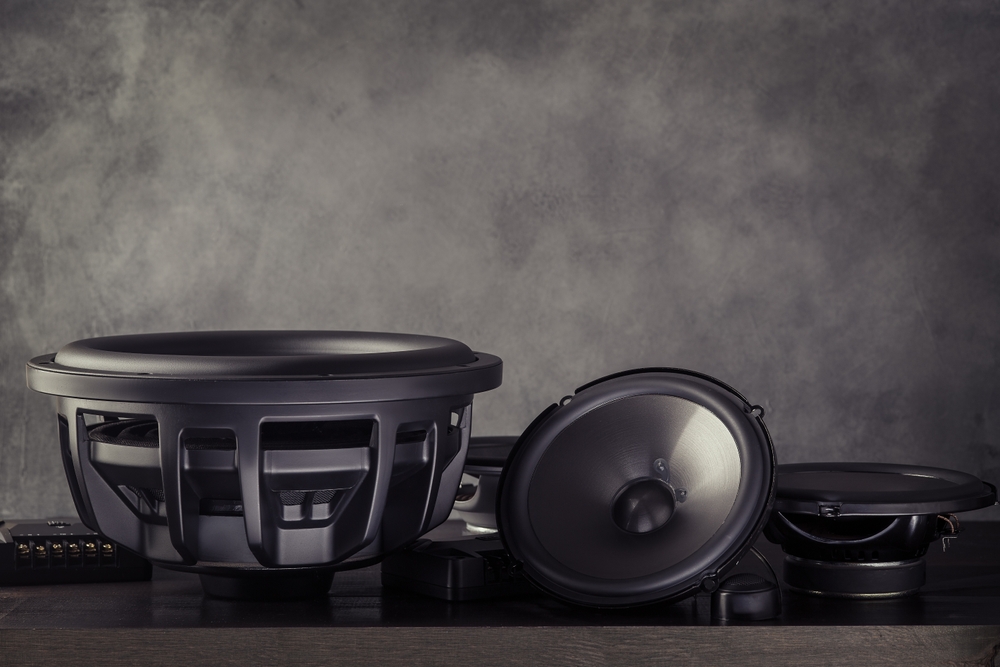
Audio Upgrades
If you’ve ever seen a TV commercial for a high-tech new car in which the audio system has been custom designed by experts to provide a listening experience that rivals the best home audio systems and wished you could have one, we’ve got news for you. You can and you don’t have to buy an expensive new car! Your local In Car Expert can design, install and calibrate a new custom audio system that sounds even better than the one in the commercial.
If you’re considering the purchase of an audio upgrade for your car, it may be helpful to ask yourself a few questions and write down the answers so your local expert can help you make the right choices
1. Are you looking for the ability to play music from a device or in a format that your current system doesn’t support? If you answered “yes” then you may need a new radio or an adapter to connect your favorite media player or your phone to your existing system. Some details about that are included in a subsequent section. If not, then you may not need to replace the radio (head unit). For more information about adding media playback options, look in the subsequent sections; “Satellite Radio”, “HD Radio” and “Connecting Your Phone”.
2. Are you looking for an improvement in clarity, the ability to play the system louder without ugly sounding distortion, or are you looking for more bass? If you answer yes to any or all of these, you may benefit from new speakers, an amplifier or two, a better subwoofer and a signal processor.
Be sure to take your notes and some of your favorite music when you visit one of our experts. That will help them design and configure a system that exceeds your expectations. To help you, we’ve included some explanations of the various components from which you’ll choose.
Head Unit:
Also referred to as “the radio”, this is the unit mounted in the dashboard that controls many of the functions of the audio system. While it is an important piece of equipment, it isn’t the primary contributor to the sound of the system. The head unit provides the ability to play back all sorts of media types and can provide options to connect with your phone or another portable media player. If you listen to music stored on or streamed to a portable device but your factory radio doesn’t provide an opportunity to conveniently connect that device to the system in your car, you may want to consider a new head unit. See more information in “Connecting Your Phone” and in “Factory Integration”
Speakers:
Ultimately, these are what you hear when you listen to your system. Good speakers should be able to handle enough power to play at the level you require without distortion. The speakers in the front of the car are the most important because those are mostly what you hear. The rear speakers provide sound for rear seat passengers and help to create a more realistic experience for front seat passengers. While the front and rear speakers can reproduce some bass, they aren’t designed to reproduce really low notes at high output levels. For those, you’ll need a subwoofer.
Subwoofer:
This is a speaker designed to produce the lowest notes in the recording. A great sounding subwoofer adds interest and the visceral impact you hear at a concert, or in a club. A subwoofer usually needs to be enclosed in a box of some kind. Your expert can custom build an enclosure that matches your car and leaves plenty of room for cargo.
Amplifier:
Amplifiers are designed to provide the power necessary for your system to play more loudly than a system that’s powered by the small amplifier in the radio (head unit). While you may think, “I don’t need concert levels in my car”, having a little more power than you think you need is important because it prevents distortion that sounds bad. It’s always better to have a little more power than you think you need than a little less.
Signal Processor:
A signal processor can be the most beneficial of all audio upgrades because it allows your local expert to compensate for the acoustic properties of your car’s interior, just like the designers of those factory systems that are fine-tuned before the car is built. Signal processors often include powerful equalizers, crossovers and other features that can make your car sound like a much more expensive home audio system. If you’re thinking about keeping the factory radio (head unit) a signal processor may be necessary to connect the aftermarket gear to the radio and to provide the tuning tools necessary for a high performance system. See “Factory Integration” for more information.

